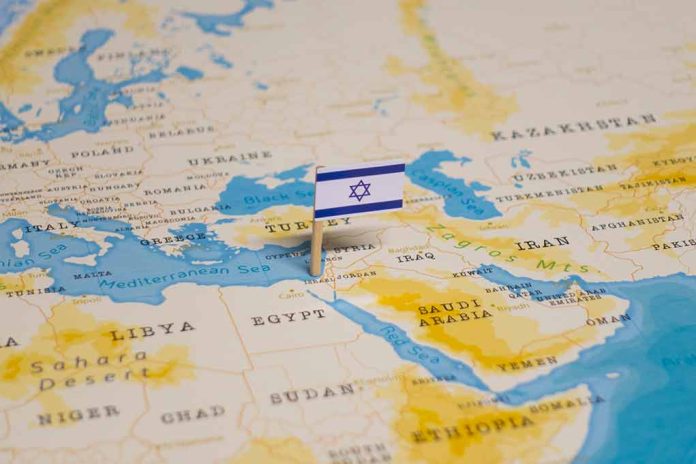
Israel’s decision to ban UNRWA operations has sent ripples through the international community, raising questions about the future of humanitarian aid in Gaza.
At a Glance
- Israel’s parliament voted to ban UNRWA operations in Gaza, citing alleged terror ties.
- International leaders, including the U.S., warned of aid disruptions and diplomatic fallout.
- Prime Minister Netanyahu faced scrutiny but cited security concerns as a rationale for the ban.
- UNRWA plays an irreplaceable role in providing aid to Palestinian refugees.
- Regional and global leaders expressed concern over the humanitarian impact.
Israel’s Legislative Move
Israel’s parliament has enacted legislation to prohibit UNRWA’s activities within its borders, marking a significant shift in its approach to the agency responsible for aiding Palestinian refugees. The new laws restrict UNRWA from operating in Israel’s sovereign territory and mandate limited contact with Israeli agencies. This decision aligns with longstanding allegations from Israeli officials linking UNRWA staff to terrorist activities, though investigations have found minimal evidence to substantiate these claims.
Prime Minister Benjamin Netanyahu has previously criticized the U.N. and described UNRWA as complicit in anti-Israel activities. Netanyahu emphasized that any personnel involved in terrorism “must be held accountable,” while stressing the necessity to maintain humanitarian aid in Gaza.
Global Response and Concerns
The international response to Israel’s decision was swift and critical. UN Secretary-General Antonio Guterres and global leaders from countries including France, Germany, and Britain expressed concerns about the impact on Gaza and the West Bank. UNRWA Commissioner-General Philippe Lazzarini deemed the ban a “dangerous precedent” and a violation of the U.N. charter. There is a mounting concern that this legislative action could worsen the humanitarian crisis in Gaza, where UNRWA plays a pivotal aid role.
Despite the criticism, Israeli officials argue that the legislation seeks to discredit the agency’s influence in perpetuating the conflict. Some members of Israel’s parliament, including Boaz Bismuth, argue that UNRWA’s efforts are counterproductive to regional peace and stability.
Implications of the Ban
The legislation implies potential closure of UNRWA’s East Jerusalem office and complicates logistical operations concerning aid coordination and staff mobility within affected regions. The Biden administration’s response highlighted possible limitations on military assistance to Israel should humanitarian aid decrease. These developments underscore strategic risks for Israel, as continued international relations hinge on the adherence to humanitarian standards.
“We are deeply concerned by this proposed legislation. They really play an irreplaceable role right now in Gaza, where they are on the front lines getting humanitarian assistance to the people who need it.” – State Department spokesman Matthew Miller
Overall, the future will depend on finding a resolution that balances Israel’s security concerns with the dire humanitarian needs that persist in Gaza. The international community, watching closely, continues to advocate for measures that ensure aid reaches those who need it most, without compromising Israel’s national security objectives.
Sources:
- Israel bans UNRWA, the U.N. relief agency for Palestinian refugees
- Israel’s Parliament Passes Bills Banning Agency That Aids Palestinians
- Israel bans UN aid agency UNRWA from operating in Israel






















